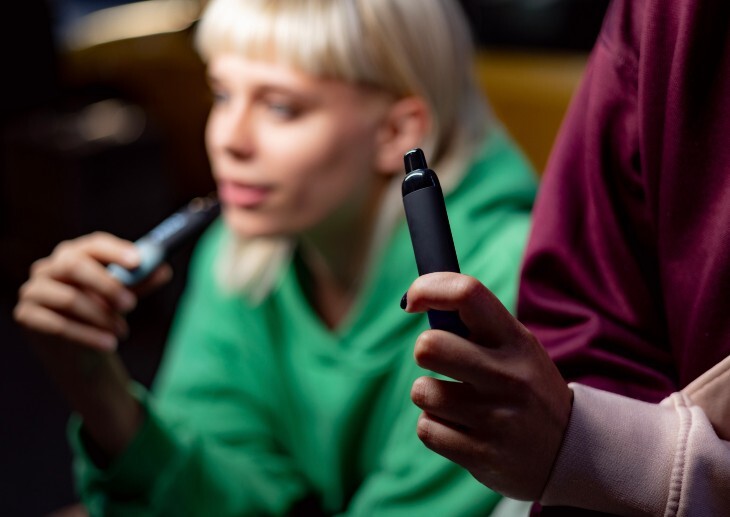The rapid rise in vaping in Britain has slowed, according to new research published in the journal Addiction.
The research, funded by Cancer Research UK, surveyed a total of 88,611 people between January 2022 and January 2025 across England, Wales and Scotland on their vaping habits. It aimed to measure whether trends in vaping had changed after plans to restrict vaping were announced by the UK Government in January 2024.
It found that before January 2024, vaping prevalence was increasing by 23.4% per year, however after the plans were announced, prevalence no longer increased and instead ‘remained relatively stable’.
During this second period, there was also a ‘substantial decline’ in the proportion of vapers who mainly used disposable e-cigarettes.
Among 16- to 24-year-olds, the proportion mainly using these disposable e-cigarettes almost halved from 63% to 35%.
It comes after the previous Government announced plans to ban disposable vapes in January 2024, with the ban coming into force on 1 June. The Tobacco and Vapes bill is also making its way through parliament, which would prohibit smoking for anyone born after 1 January 2009, as well as restricting the packaging, marketing and flavours of vapes.
Lead author Dr Sarah Jackson, from UCL Institute of Epidemiology & Health Care, said: ‘Action is likely still required to reduce high vaping rates, but now that the situation has stabilised policymakers may be reassured that it would be sensible to avoid stricter policy options currently under review. Some of the options being considered may be more likely to have the unintended consequence of deterring smokers from using vapes to quit smoking.
‘Our results also suggest that the Government’s ban on disposables, coming into force in June, may have limited impact on vaping rates in general, given that vapers are already moving away from disposable vapes. It seems likely that people using these products will move to re-usable versions rather than stop vaping completely.’
Dr Jackson added: ‘The research cannot tell us why vaping rates have levelled off, but we have in the past seen changes in smoking habits before a policy change, with people adapting their behaviour in anticipation of a new policy.’
Senior author Professor Jamie Brown from UCL Institute of Epidemiology & Health Care, added: ‘While it is understandable that policymakers want to take action to reduce vaping among children and never smokers, smoking remains the number one public health priority.
‘These findings should reassure policymakers that they can prioritise measures, such as restrictions on marketing, packaging and display, which are least likely to undermine how helpful vapes are for people trying to quit smoking.
‘It is important that these measures are introduced alongside other messaging and policies that continue to encourage and support smokers to quit smoking, such as mass media campaigns and the swap to stop scheme.’
It comes as the Government has announced £10m to fund 80 apprentice enforcement officers to clamp down on vaping in local communities.
In October, it was found that one million people vape despite never having been regular smokers.




